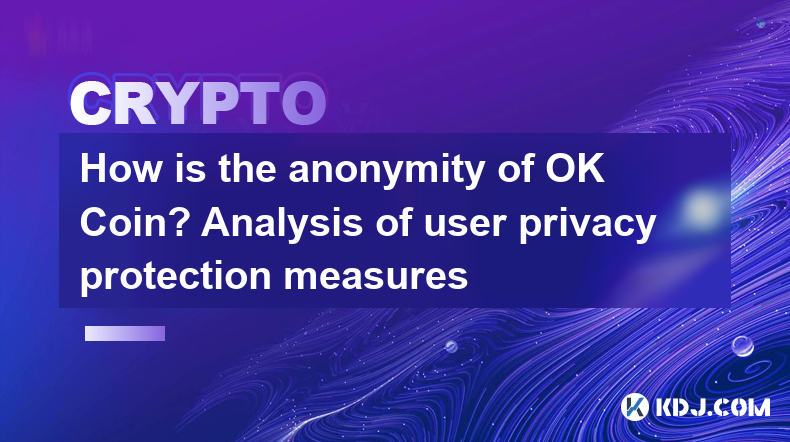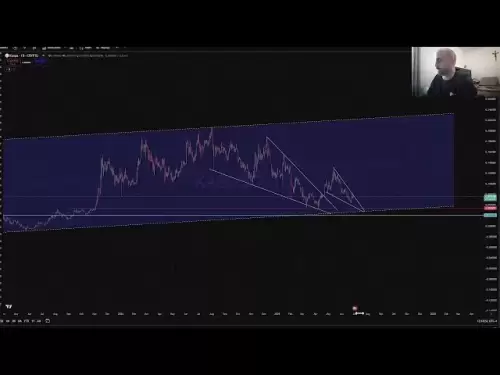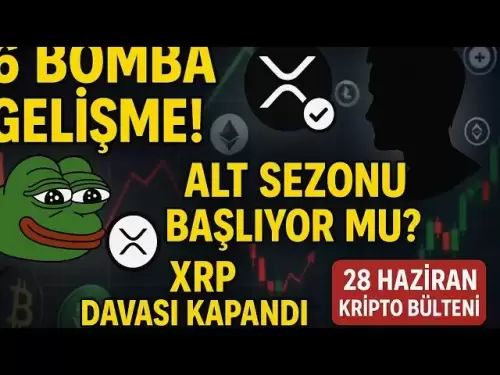-
 Bitcoin
Bitcoin $107,341.7259
0.15% -
 Ethereum
Ethereum $2,438.6204
0.70% -
 Tether USDt
Tether USDt $1.0003
-0.02% -
 XRP
XRP $2.1866
1.94% -
 BNB
BNB $649.0952
0.36% -
 Solana
Solana $150.9602
5.63% -
 USDC
USDC $0.9999
0.00% -
 TRON
TRON $0.2742
0.40% -
 Dogecoin
Dogecoin $0.1645
1.93% -
 Cardano
Cardano $0.5669
1.18% -
 Hyperliquid
Hyperliquid $37.8286
4.19% -
 Bitcoin Cash
Bitcoin Cash $491.4669
-2.74% -
 Sui
Sui $2.8150
3.06% -
 Chainlink
Chainlink $13.4184
2.91% -
 UNUS SED LEO
UNUS SED LEO $9.0809
0.27% -
 Avalanche
Avalanche $18.0295
2.60% -
 Stellar
Stellar $0.2396
1.19% -
 Toncoin
Toncoin $2.8587
0.13% -
 Shiba Inu
Shiba Inu $0.0...01160
2.59% -
 Litecoin
Litecoin $86.4192
1.45% -
 Hedera
Hedera $0.1486
1.19% -
 Monero
Monero $308.4324
0.87% -
 Polkadot
Polkadot $3.4202
1.43% -
 Bitget Token
Bitget Token $4.6436
-0.34% -
 Dai
Dai $0.9998
-0.02% -
 Ethena USDe
Ethena USDe $1.0002
0.00% -
 Uniswap
Uniswap $7.1527
3.29% -
 Pi
Pi $0.5357
-8.45% -
 Pepe
Pepe $0.0...09588
4.61% -
 Aave
Aave $259.9759
0.81%
How is the anonymity of OK Coin? Analysis of user privacy protection measures
OKCoin balances user privacy with regulatory compliance; complete anonymity isn't possible due to KYC/AML requirements, but the platform employs security measures to protect user data. The level of privacy depends on user activity and applicable regulations.
Mar 11, 2025 at 02:36 pm

Key Points:
- OKCoin's anonymity is a complex issue, balancing regulatory compliance with user privacy.
- While not entirely anonymous, OKCoin employs various measures to protect user data.
- The level of anonymity depends on user actions and KYC/AML compliance requirements.
- Understanding OKCoin's privacy policies and practices is crucial for informed decision-making.
- Users should always be aware of the inherent risks associated with using any cryptocurrency exchange.
How is the Anonymity of OKCoin? Analysis of User Privacy Protection Measures
OKCoin, like other major cryptocurrency exchanges, operates within a regulatory framework that necessitates Know Your Customer (KYC) and Anti-Money Laundering (AML) compliance. This means complete anonymity is not possible. To open an account and trade, users must typically provide identification documents. This verification process is designed to prevent illicit activities and comply with international regulations. However, OKCoin does employ several measures to safeguard user privacy beyond this basic requirement.
The extent of data collected by OKCoin includes standard registration information (name, email, address) and potentially more depending on transaction volume and regulatory requirements. This data is used for account verification, security purposes, and to comply with legal obligations. The platform's privacy policy outlines what data is collected and how it's used, although users should carefully review this document for complete understanding.
OKCoin employs various security measures to protect user data from unauthorized access. These typically include data encryption both in transit and at rest, along with robust firewalls and intrusion detection systems. The exchange also regularly updates its security protocols to address evolving threats in the cyber landscape. However, no system is impenetrable, and users should always practice good security hygiene, including strong passwords and two-factor authentication (2FA).
While OKCoin requires KYC, the level of personal information required can vary based on jurisdictional regulations and the user's trading activity. High-volume traders may face more stringent verification procedures than those engaging in smaller transactions. This tiered approach aims to balance regulatory compliance with minimizing the burden on users. However, it also means the level of anonymity varies depending on individual circumstances.
OKCoin’s commitment to user privacy is also reflected in its data retention policies. The exchange typically retains user data for a specific period, after which it is either deleted or anonymized according to its privacy policy. The specifics of data retention vary depending on the type of data and relevant legal requirements. Understanding these policies is crucial for assessing the long-term privacy implications of using the platform.
The use of IP addresses and other identifying information presents another facet of the anonymity discussion. OKCoin, like other online services, records IP addresses for security and monitoring purposes. This data can potentially be used to track user activity, though the extent to which this information is actively monitored and utilized depends on the platform's policies and any legal requests received.
Using virtual private networks (VPNs) can offer a degree of increased privacy by masking a user's IP address. However, it's important to note that using a VPN does not guarantee complete anonymity and may even trigger additional scrutiny from OKCoin due to potential security concerns. Furthermore, VPN usage might violate OKCoin's terms of service in some instances.
OKCoin offers various withdrawal methods, each carrying different levels of privacy. While some methods may offer a higher degree of anonymity, they often come with additional fees or limitations. Users should carefully consider the trade-offs between privacy and convenience when selecting a withdrawal method. The platform's guidelines regarding withdrawal limits and verification processes should also be carefully reviewed.
Beyond the measures implemented by OKCoin, users can take proactive steps to enhance their privacy. This includes using strong and unique passwords, enabling 2FA, and regularly reviewing their account activity for any suspicious transactions. Staying informed about security best practices and potential threats is also essential for mitigating privacy risks.
The use of cryptocurrency itself introduces a layer of pseudonymous activity. While transactions on the blockchain are publicly recorded, they are typically linked to wallet addresses, not necessarily directly identifiable individuals. However, linking wallet addresses to real-world identities is a possibility through various investigative methods, depending on the level of user activity and interaction with centralized exchanges.
Frequently Asked Questions:
Q: Does OKCoin sell my data to third parties? A: OKCoin's privacy policy should detail whether it shares user data with third parties. Generally, exchanges might share data with law enforcement under legal compulsion or with service providers for essential operational functions. Reviewing the policy is essential for clarity.
Q: How secure is OKCoin compared to other exchanges? A: The security of any cryptocurrency exchange is constantly evolving. While OKCoin employs various security measures, comparing it directly to other exchanges requires independent research and analysis of their respective security practices and incident reports.
Q: Can I remain completely anonymous on OKCoin? A: No. Due to KYC/AML regulations, complete anonymity on OKCoin is not possible. The exchange requires user identification for account verification.
Q: What happens if I violate OKCoin's terms of service regarding privacy? A: Violating the terms of service can result in account suspension or termination, depending on the severity of the violation. The specific consequences are detailed within OKCoin's terms of service document.
Q: What is OKCoin's policy on data retention? A: OKCoin's data retention policy is outlined in its privacy policy. This policy specifies how long user data is retained and under what circumstances it is deleted or anonymized. Users should consult this document for specifics.
Disclaimer:info@kdj.com
The information provided is not trading advice. kdj.com does not assume any responsibility for any investments made based on the information provided in this article. Cryptocurrencies are highly volatile and it is highly recommended that you invest with caution after thorough research!
If you believe that the content used on this website infringes your copyright, please contact us immediately (info@kdj.com) and we will delete it promptly.
- Ruvi AI: The Audited Token Primed to Lead the Bull Run, Outshining Competitors
- 2025-06-29 06:30:13
- Ruvi AI: The Smart Shiba Inu? Token Rally Potential Examined
- 2025-06-29 06:30:13
- Bitcoin, AI Tokens, and Ruvi AI: What's the Deal?
- 2025-06-29 06:50:12
- Cryptos with Real-World Utility and Growth Potential: Qubetics and Beyond
- 2025-06-29 06:35:13
- Bitcoin Breakout Imminent: Institutional Demand Fuels the Fire
- 2025-06-29 07:30:13
- Ruvi AI, Dogecoin, and ROI: Decoding the Crypto Hype
- 2025-06-29 07:12:05
Related knowledge

How to customize USDT TRC20 mining fees? Flexible adjustment tutorial
Jun 13,2025 at 01:42am
Understanding USDT TRC20 Mining FeesMining fees on the TRON (TRC20) network are essential for processing transactions. Unlike Bitcoin or Ethereum, where miners directly validate transactions, TRON uses a delegated proof-of-stake (DPoS) mechanism. However, users still need to pay bandwidth and energy fees, which are collectively referred to as 'mining fe...

USDT TRC20 transaction is stuck? Solution summary
Jun 14,2025 at 11:15pm
Understanding USDT TRC20 TransactionsWhen users mention that a USDT TRC20 transaction is stuck, they typically refer to a situation where the transfer of Tether (USDT) on the TRON blockchain has not been confirmed for an extended period. This issue may arise due to various reasons such as network congestion, insufficient transaction fees, or wallet-rela...

How to cancel USDT TRC20 unconfirmed transactions? Operation guide
Jun 13,2025 at 11:01pm
Understanding USDT TRC20 Unconfirmed TransactionsWhen dealing with USDT TRC20 transactions, it’s crucial to understand what an unconfirmed transaction means. An unconfirmed transaction is one that has been broadcasted to the blockchain network but hasn’t yet been included in a block. This typically occurs due to low transaction fees or network congestio...

How to check USDT TRC20 balance? Introduction to multiple query methods
Jun 21,2025 at 02:42am
Understanding USDT TRC20 and Its ImportanceUSDT (Tether) is one of the most widely used stablecoins in the cryptocurrency market. It exists on multiple blockchain networks, including TRC20, which operates on the Tron (TRX) network. Checking your USDT TRC20 balance accurately is crucial for users who hold or transact with this asset. Whether you're sendi...

What to do if USDT TRC20 transfers are congested? Speed up trading skills
Jun 13,2025 at 09:56am
Understanding USDT TRC20 Transfer CongestionWhen transferring USDT TRC20, users may occasionally experience delays or congestion. This typically occurs due to network overload on the TRON blockchain, which hosts the TRC20 version of Tether. Unlike the ERC20 variant (which runs on Ethereum), TRC20 transactions are generally faster and cheaper, but during...

The relationship between USDT TRC20 and TRON chain: technical background analysis
Jun 12,2025 at 01:28pm
What is USDT TRC20?USDT TRC20 refers to the Tether (USDT) token issued on the TRON blockchain using the TRC-20 standard. Unlike the more commonly known ERC-20 version of USDT (which runs on Ethereum), the TRC-20 variant leverages the TRON network's infrastructure for faster and cheaper transactions. The emergence of this version came as part of Tether’s...

How to customize USDT TRC20 mining fees? Flexible adjustment tutorial
Jun 13,2025 at 01:42am
Understanding USDT TRC20 Mining FeesMining fees on the TRON (TRC20) network are essential for processing transactions. Unlike Bitcoin or Ethereum, where miners directly validate transactions, TRON uses a delegated proof-of-stake (DPoS) mechanism. However, users still need to pay bandwidth and energy fees, which are collectively referred to as 'mining fe...

USDT TRC20 transaction is stuck? Solution summary
Jun 14,2025 at 11:15pm
Understanding USDT TRC20 TransactionsWhen users mention that a USDT TRC20 transaction is stuck, they typically refer to a situation where the transfer of Tether (USDT) on the TRON blockchain has not been confirmed for an extended period. This issue may arise due to various reasons such as network congestion, insufficient transaction fees, or wallet-rela...

How to cancel USDT TRC20 unconfirmed transactions? Operation guide
Jun 13,2025 at 11:01pm
Understanding USDT TRC20 Unconfirmed TransactionsWhen dealing with USDT TRC20 transactions, it’s crucial to understand what an unconfirmed transaction means. An unconfirmed transaction is one that has been broadcasted to the blockchain network but hasn’t yet been included in a block. This typically occurs due to low transaction fees or network congestio...

How to check USDT TRC20 balance? Introduction to multiple query methods
Jun 21,2025 at 02:42am
Understanding USDT TRC20 and Its ImportanceUSDT (Tether) is one of the most widely used stablecoins in the cryptocurrency market. It exists on multiple blockchain networks, including TRC20, which operates on the Tron (TRX) network. Checking your USDT TRC20 balance accurately is crucial for users who hold or transact with this asset. Whether you're sendi...

What to do if USDT TRC20 transfers are congested? Speed up trading skills
Jun 13,2025 at 09:56am
Understanding USDT TRC20 Transfer CongestionWhen transferring USDT TRC20, users may occasionally experience delays or congestion. This typically occurs due to network overload on the TRON blockchain, which hosts the TRC20 version of Tether. Unlike the ERC20 variant (which runs on Ethereum), TRC20 transactions are generally faster and cheaper, but during...

The relationship between USDT TRC20 and TRON chain: technical background analysis
Jun 12,2025 at 01:28pm
What is USDT TRC20?USDT TRC20 refers to the Tether (USDT) token issued on the TRON blockchain using the TRC-20 standard. Unlike the more commonly known ERC-20 version of USDT (which runs on Ethereum), the TRC-20 variant leverages the TRON network's infrastructure for faster and cheaper transactions. The emergence of this version came as part of Tether’s...
See all articles

























































































